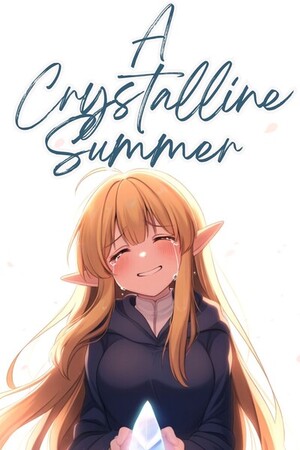Chapter 13:
Twelve
Beneath the Portrait
She slept for hours.
And hours and hours and hours. Time slipped away, shapeless and silent. Each day bled into the next, indistinguishable. She didn’t rise for lessons, didn’t rise for meetings—claiming sickness, and in a way, it was true. But no medicine could cure the heaviness inside her, the ache of unfinished goodbyes, of futures that would never be. She grieved what she had lost—and what she’d never had.
Sometimes, she heard the knock—soft, hesitant. A voice murmured that food had been left outside. But she never moved, curling deeper beneath the covers, as if they could shield her from everything she had lost. Sleep came in fits, each one stained with tears. She was haunted by the traces of Jan’s smile, the silence from Rovin. And when those memories clawed through the quiet, burned too sharply, she turned to mourning someone she had never known but always missed—the father she never met, whose voice she could only imagine.
Would he have looked at her and seen someone worth loving? Would he have recognized the heart beneath the armor she wore? Would he have urged her to chase her dreams, no matter the cost?
Would she have been someone worth fighting for?
She was drowning in her thoughts when the soft click of the door sliced through the silence. A shift in weight at the edge of her bed—unexpected, unsettling. A cold, deliberate hand threaded through her hair, slow, but kind. The scent of aged wine and roses clung to the air—familiar, yet distant, like dreaming of an old memory.
"Arrella, my girl, you need to eat," her mother called gingerly, voice filled with a tenderness that could not reach her.
Arrella squeezed her eyes shut, burrowing deeper into her covers, her back turned firmly away from her mother.
Her mother’s sigh pulsed through the silence. "This has been going on for far too long. It’s been four days already." The frustration in her voice was unmistakable.
Arrella didn’t respond, her silence thick with everything she couldn’t say.
Her mother’s voice softened, but there was an edge to it. "Sweetheart, you can’t keep avoiding everything. The wedding’s coming up soon.”
Arrella’s hand gripped the edge of the sheets, her nails biting into the fabric, but she didn’t move, her chest heaving with a shallow breath.
“Has something happened?"
Arrella didn’t have the energy to even begin explaining, nor did she want to. The weight of her emotions felt too heavy, her mind too fogged to make sense of anything. She lifted one shoulder in a small, weary gesture.
Her mother turned, her back brushing gently against Arrella’s, as if offering a silent comfort.
“Let me tell you a story,” her mother said, her voice low. “A story from my childhood. It’s an old myth, but it’s one I’ve always remembered. It’s the story of a young forgotten heir who lost everything, only to be saved by love.”
Arrella felt herself tense, the room heavy with a stillness that clung to the air. Her mother’s words continued, voice tinged with a sadness that Arrella couldn’t place but left her with a sense of quiet despair.
"Betrayed by his own family—the father he loved, the brother who left him—he was left with nothing but the shattered remnants of everything he’d once believed in.
“Yet even when all was lost, there was still love—love for the people he had once believed in, and the love that reminded him of who he was, even when everyone else had cast him aside. It was love that kept him from losing himself completely, the one thing that remained unchanged, untouched by betrayal.
“And in the end, it was love that saved him—even until his death,” her mother said softly, her voice steady but wrapped with an unspoken grief.
Arrella remained silent, her mind swirling with fragments of a story she’d once heard—another place, a different name. The weight of it pressed against her ribs, her chest aching with the ghost of a touch, of dark eyes and soft smiles.
Her mother’s voice broke the silence once more, quiet but resolute. “Sometimes, it’s not the betrayal that breaks us, but the love that keeps us from surrendering, even when everything is lost.” She carefully took Arrella’s hands in hers, her grip firm yet tender. “Not to change the past, but to give the world a future.”
She turned to leave, but Arrella tightened her hands. Why are you telling me this? she asked, fingers shaking.
Her mother paused, her face faltering as she glanced back at her. The smile she gave Arrella was fragile, grieved by the weight of unspoken memories. "I once thought fate held all the answers," she began, her voice tinged with regret. "I believed everything was written, that the universe guided us in ways we couldn't understand. But I learned the hard way that fate isn’t always kind. It's our choices—how we respond to the things life throws at us—that shape who we are."
Her gaze turned back to Arrella, soft and knowing. " A man who risked everything for what he believed in, even if it meant being torn away from the ones he loved. I loved him, even when he left me. Even when I didn’t know if he would come back. And when he died, I didn’t stop loving him. His spirit never truly left me, Arrella."
She took a deep breath, her gaze softening as she looked at her daughter. "Your father and I… we didn’t have the luxury of fate. We had love. And love is unpredictable, messy—but it’s what kept us going when everything else fell apart.”
She hesitated, clenching their hands together. "He was a fighter," she said quietly, her eyes distant. "From the moment I met him, I knew he could never truly be mine. When he died—an illness, they called it—I never stopped loving him, even when the cost of his choices seemed too high to bear."
Her mother’s voice softened, eyes wide and imploring. "Trust in Aiden, Arrella. He may not be perfect, but neither was your father."
She stood, her gaze firming, the softness vanishing from her features. “You don’t have to love him, but you have to trust him.” Then, without another word, she left.
Arrella felt the weight of her mother’s words settling within her. She stared out the window for a long time, pale sunlight brushing over her skin, the view outside a blur of fading movement and shifting shadows. She listened to life moving beyond her room: distant footfalls, muffled conversation, a sudden burst of laughter, the window gently rattling from the wind.
A hint of something warm and spiced—soup, maybe—lingered in the air. Her stomach growled, low and loud. Uncertainty still clung to her, but beneath it, something else stirred: a quiet resolve, fragile but growing. And she pulled herself upright.




Please sign in to leave a comment.